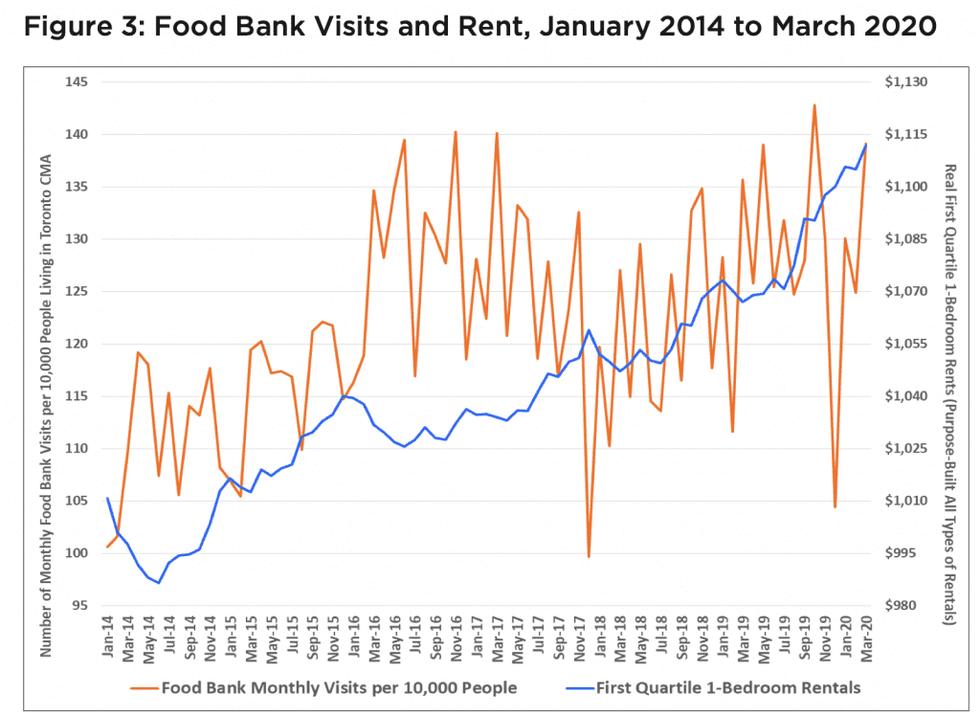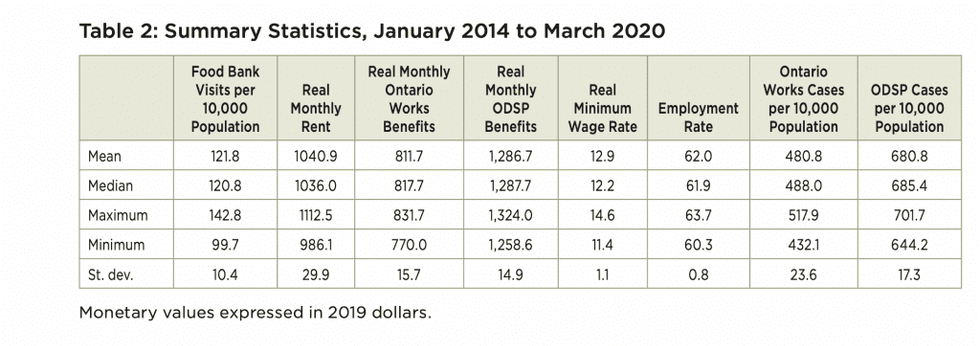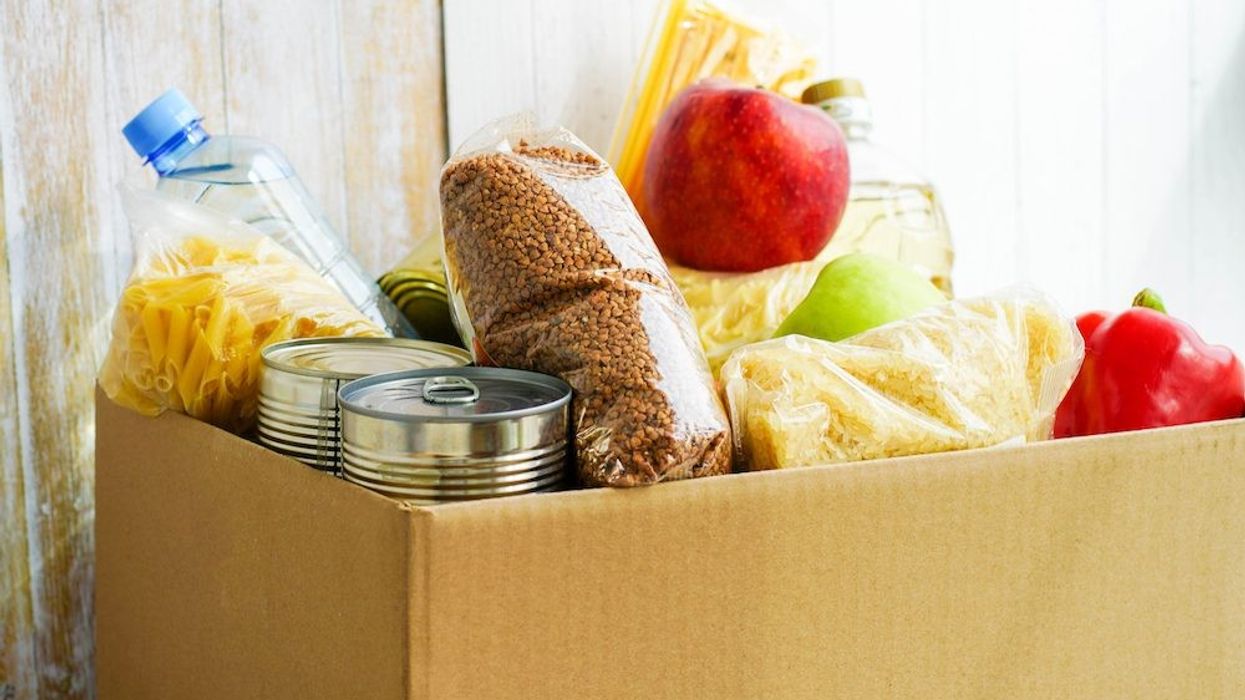Increases in rent are associated with more local food bank visits.
A new report by Ron Kneebone and Margarita Wilkins at the School of Public Policy at The University of Calgary, identifies the extent to which food bank visits may be directly associated with changes in government policies.
The authors examined monthly data from Toronto’s Daily Bread Food Bank to track changes in the cost of shelter and in labour market conditions against food bank visits between January 2014 and March 2020. During this period -- notably, a time before the relentless pandemic rendered many of the city’s most financially vulnerable even more so -- there was a 53% increase in visits.
The report finds that food bank visits directly rise with increases in rent, with falls in minimum wage, and with the reduction of disability benefits available to individuals requiring social assistance.
The dismal, but not entirely surprising, news is highlighted in the report's details. A $30 per month increase in rent would lead to a staggering 73,776 more visits to food banks annually in Toronto and 375,512 more visits across Ontario. A $1 increase in minimum wage would lead to close to 36,876 fewer visits to food banks annually in Toronto and 187,756 fewer visits across Ontario. Finally, a $15 per month increase in Ontario Disability Support Program (ODSP) would be associated with 53,652 fewer visits to food banks annually in Toronto and 273,099 fewer visits across Ontario.

"This study shows that governments can put food banks out of business by focusing policies on rent stability and increasing wages and disability benefits," says Neil Hetherington, CEO, Daily Bread Food Bank. "A failure to prioritize these will sadly drive more people to our doors because they have nowhere else to turn when their income cannot cover the cost of living."
With a median income of just $1,106 per month -- which falls well below Toronto's poverty line of $2,060 per month -- city food bank clients have $9.17 left per person per day after rent and utilities to pay for food and other necessities, highlights the Daily Bread Food Bank in a press release. Let that set in; especially when the cost of groceries and other life needs is only increasing, thanks to rising inflation.
Not to mention, Toronto rents are climbing back to pre-pandemic levels.
The Daily Bread Food Bank points to the 2021 Who's Hungry report, which found that 51% of food bank clients have a disability or health condition that is expected to last a year or more. In addition, 80% of food bank clients living in private market rentals, reported they pay more than half of their income on housing, putting them at high risk of homelessness.
"The estimated coefficient on rent indicates that a one per cent increase in the real value of a one-bedroom rental unit priced in the first quartile of market rents is associated with a six per cent increase in food bank visits," reads the report. "Rental market tightness thus contributes in an important way to an increase in food bank visits. Higher rent squeezes an already tight budget for necessities, causing greater reliance on food banks to relieve that pressure."
This insight comes at a time when Canada's most vulnerable, like an alarming number of its senior citizens, are cutting back on food and medical necessities due to housing costs.

"For individuals and families with little in the way of savings and with limited access to borrowing from non-predatory lenders, even temporary losses of income or unexpected expenses demand an immediate adjustment to the rest of their already strained budgets," says Ron Kneebone, Scientific Director of Social and Health Policy, School of Public Policy, University of Calgary. "Food banks can enable individuals and families to reallocate income away from expenditures on food toward meeting other basic needs."
Sadly, Toronto saw 1.45M visits to food banks last year -- the largest number ever recorded in the city's history.
“Although food banks are designed to provide emergency food relief, food insecurity cannot be outsourced to charity,” says the Daily Bread Food Bank. “All levels of government have a responsibility to put poverty reduction in their agendas and enact policies that will help to build economic and social resilience and ensure the right to food for all individuals.”
Clearly, it's up to governments to raise social support benefits and increase the minimum wage in response to climbing inflation and rent costs. If they don't, not only will food banks continue to face increased pressure on their resources, Toronto's out-of-control homeless problem will only worsen.





















